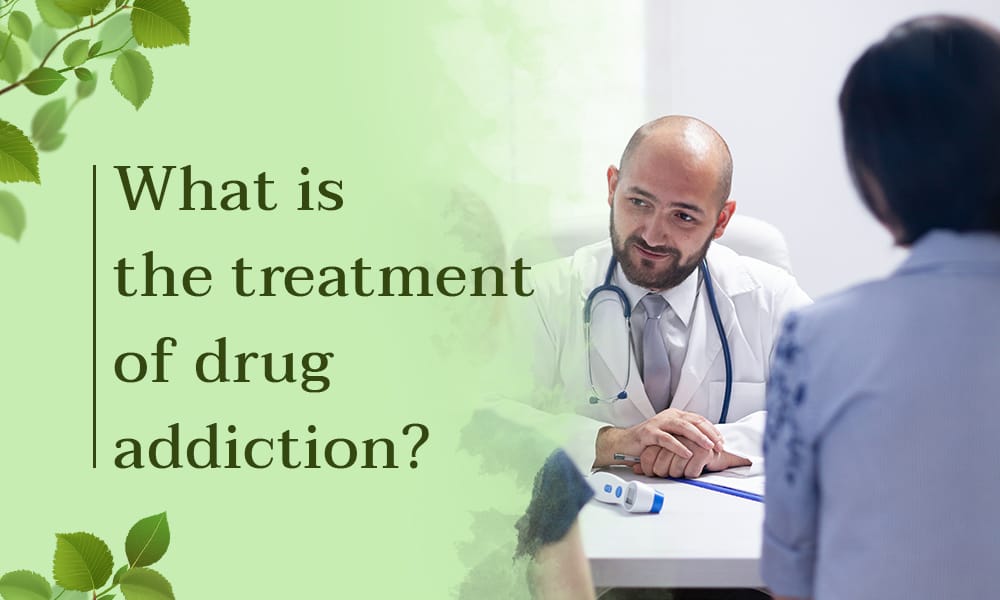- Jofa Tower 5th floor, SB-23, Block 13 C, Main University Rd, Gulshan-e-Iqbal, Karachi.
- +92 322 3746726
- tis@transformation.com.pk
What is the treatment of Drug addiction?

Types of Child Psychotherapy
August 16, 2023
Psychological Evaluation for Adults
October 3, 2023Drug addiction, a complex and challenging issue that has permeated societies worldwide, demands a comprehensive and compassionate approach to treatment. It ensnares individuals in a cycle of physical dependence and psychological craving, disrupting their lives and those around them. The journey to recovery from drug addiction is not only a personal one but also a collective endeavor involving medical professionals, therapists, families, and communities. In this article, we delve into the multifaceted realm of drug addiction treatment, exploring various strategies that aim to break the shackles of addiction and pave the way toward a healthier and more fulfilling life.
Nature of Drug Addiction:
Drug addiction represents an intricate and persistent brain ailment distinguished by an irresistible pursuit of drugs, their consumption, and intense desires, all while neglecting the detrimental aftermath. Gradually, it takes shape due to an amalgamation of diverse factors that interact, encompassing biological, psychological, and environmental elements. The essence of drug addiction encompasses:

Compulsive Behavior: Drug addiction engenders an involuntary behavioral cycle where an individual experiences an overpowering compulsion to partake in drug use, even with the awareness of its adverse impact on their health and life.
Neurological Changes: Prolonged drug use alters the brain's structure and functioning, affecting areas responsible for decision-making, impulse control, and pleasure. This rewiring contributes to the persistent nature of addiction.
Tolerance and Dependence: With continued drug use, the body adapts and develops tolerance, requiring higher doses to achieve the same effects. Dependence also develops, leading to withdrawal symptoms when drug use is reduced or stopped.
Reward Pathway Hijacking: Drugs activate the brain's reward system, flooding it with dopamine, a neurotransmitter associated with pleasure and reward. Over time, this can lead to a blunted response to natural rewards and an increased focus on drug seeking.
Psychological Factors: Underlying psychological factors such as stress, trauma, mental health disorders, and peer pressure can contribute to the development and perpetuation of drug addiction.
Environmental Factors: Societal and environmental elements, including drug availability, familial interactions, socioeconomic position, and cultural standards, substantially contribute to influencing an individual's vulnerability towards drug addiction.
Repetitive Cycle: Drug addiction frequently adheres to a recurrent sequence involving urges, drug consumption, momentary alleviation, and unfavorable outcomes. This sequence strengthens the addictive conduct, rendering liberation from its grip a challenging endeavor.
Drug Addiction & Alcohol Rehabilitation Center in Karachi
Book An Appointment For Intake Session / Consultancy / OPD charges Rs. 1000/- only
Variety of Approaches in Drug Addiction Treatment:
Medical Detoxification: This process is crucial in removing toxic substances from the body. Gradually reducing the intake of addictive substances under supervision helps diminish the body's dependence on them.
Counseling: Counseling provides guidance and support through discussion and advice. Conversations with a medical professional, mental health expert, or counselor aid in understanding mental states and finding solutions to problems.
Behavioral Therapy: Behavioral therapy focuses on the individual's mental patterns. Through different techniques, it helps individuals confront and resolve issues, reducing the allure of addictive substances
Support Groups: Support groups enable individuals to share experiences and learn from others. Such groups bring people together, offering mutual assistance and encouragement.
Medical Interventions and Therapies:
Medication-Assisted Treatment (MAT): MAT combines behavioral therapy with medications to effectively address substance use disorders. Medications like methadone, buprenorphine, or naltrexone aid in managing withdrawal symptoms and cravings.MAT helps stabilize brain chemistry and reduces the risk of relapse.
Cognitive-Behavioral Therapy (CBT):CBT is designed to modify detrimental thought patterns and behaviors linked to addiction. Therapists assist individuals in identifying triggers, cultivating effective coping mechanisms, and constructing more constructive reactions. Through CBT, individuals cultivate self-awareness and acquire tools to navigate cravings, thereby reducing the risk of relapse.
Motivational Enhancement Therapy: This therapy aims to enhance an individual's motivation to overcome addiction and commit to change. Therapists engage in empathetic conversations, helping individuals explore their goals and values. MET empowers individuals to make positive choices and boosts their confidence in achieving recovery milestones.

Comprehensive Strategies for Drug Addiction Recovery:
Yoga and Mindfulness Meditation: Incorporating yoga and mindfulness meditation helps individuals reconnect with their bodies and minds. These practices promote relaxation, stress reduction, and emotional balance, which are crucial aspects of recovery.
Nutritional Rehabilitation: Proper nutrition plays a pivotal role in restoring physical health during addiction recovery. A balanced diet rich in essential nutrients aids in repairing the body's systems that may have been compromised due to substance abuse.
Physical Exercise and Activity: Engaging in regular exercise enhances physical fitness and mental well-being. Physical activity triggers the release of endorphins, contributing to improved mood and reduced cravings.
Mind-Body Techniques: Techniques like acupuncture, massage therapy, and biofeedback promote relaxation and overall wellness. These practices help individuals manage stress, pain, and emotional imbalances associated with addiction.
Spiritual Exploration: Exploring one's spirituality can provide a sense of purpose and connection during recovery. Engaging in activities that align with personal beliefs can enhance self-discovery and foster inner healing.
Navigating Challenges in Drug Addiction Treatment:
Stigma and Social Perception: Society's negative perception of addiction can lead to shame and isolation for individuals seeking help. Stigma may hinder individuals from seeking treatment, as they fear judgment and discrimination.
Treatment Accessibility: Limited access to quality treatment facilities and resources poses a significant challenge. Economic, geographic, and systemic barriers can hinder individuals from accessing the care they need.
Socioeconomic Factors: Disparities in socioeconomic status can exert an influence on the accessibility and caliber of available treatment avenues. Financial limitations and a dearth of resources might obstruct individuals from obtaining comprehensive and effective care.
Risk of Relapse: Drug addiction recovery is often marked by relapses, where individuals revert to substance use after a period of abstinence. Overcoming relapse requires a comprehensive support system and effective coping strategies.
Co-occurring Mental Health Disorders: Numerous individuals grappling with addiction also contend with concurrent mental health challenges. It is imperative to concurrently address addiction and mental health for a comprehensive path to recovery.
Long-Term Recovery Support: Sustaining recovery beyond the initial treatment phase requires ongoing support and resources. Individuals often face challenges in maintaining sobriety in their daily lives.Navigating these challenges demands a multifaceted approach that involves awareness, education, policy changes, and community support. By addressing these obstacles head-on, the drug addiction treatment landscape can become more inclusive, effective, and conducive to long-term recovery.
Drug Addiction & Alcohol Rehabilitation Center in Karachi
Book An Appointment For Intake Session / Consultancy / OPD charges Rs. 1000/- only




